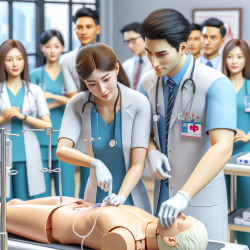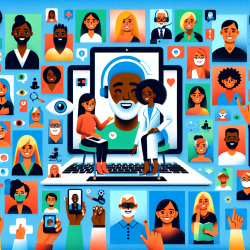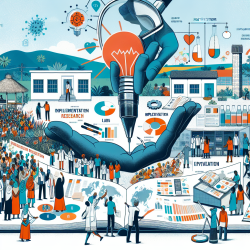Introduction
In today's healthcare landscape, the importance of interprofessional collaboration cannot be overstated. As healthcare professionals, it is crucial to develop the skills necessary for effective teamwork and communication across disciplines. The research article titled "A Comparison of Nursing and Pharmacy Students’ Perceptions of an Acute Care Simulation" provides valuable insights into how simulation-based training can enhance these skills among healthcare students.
Understanding the Study
The study involved 250 students from six health science programs, including nursing and pharmacy, participating in a simulation-based interprofessional education (IPE) activity. The simulation aimed to mimic real-world acute care scenarios, allowing students to engage in patient care collaboratively. The research utilized the Student Perceptions of Interprofessional Clinical Education Revised (SPICE-R2) tool to assess students' perceptions before and after the simulation.
Key Findings
The study revealed several important findings:
- Students reported more positive perceptions of interprofessional collaboration after the simulation.
- Pharmacy students consistently scored higher than nursing students on items related to the benefits of interprofessional teams in reducing healthcare costs and improving patient-centeredness.
- The simulation significantly increased students' understanding of roles and responsibilities within interprofessional teams.
Implications for Practice
For practitioners and educators in the field of healthcare, these findings underscore the value of incorporating simulation-based IPE into curricula. By doing so, students can develop a deeper understanding of the roles and responsibilities of different healthcare professionals, leading to improved collaboration and patient outcomes.
Practitioners can enhance their skills by:
- Participating in or facilitating interprofessional simulations that mimic real-world scenarios.
- Encouraging students to engage in teamwork with peers from different health professions to gain diverse perspectives.
- Continuously evaluating and refining simulation activities to address identified gaps and improve learning outcomes.
Encouraging Further Research
While the study provides valuable insights, it also highlights the need for further research. Future studies should explore the impact of interprofessional simulations across various academic institutions and disciplines to strengthen the current literature. Additionally, examining long-term outcomes of simulation-based IPE on professional practice could provide further evidence of its benefits.
To read the original research paper, please follow this link: A Comparison of Nursing and Pharmacy Students’ Perceptions of an Acute Care Simulation.










